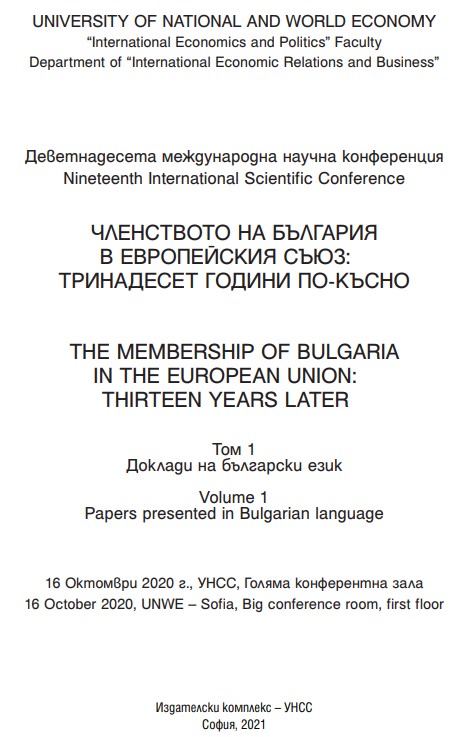Икономически ефекти от пандемията от КОВИД-19 върху работниците мигранти в ЕС
Economic Impact of COVID-19 on Migrant Workers in the EU
Author(s): Atanas Pavlov
Subject(s): Social Sciences, Economy, Supranational / Global Economy, Sociology, Migration Studies
Published by: Университет за национално и световно стопанство (УНСС)
Keywords: Migration; Labour Force; Economic Impact; Economic Growth
Summary/Abstract: Globally, the migrant workers and their families are highly exposed, both directly to the COVID-19 pandemic and the risk of infection, as well as to the consequent negative economic effects. Prior to the pandemic, more than 270 million people are living outside their country of origin, sending nearly $ 700 billion in remittances to their home countries. As of mid-May 2020, the 20 countries with the most cases of COVID-19 receive 55 percent of the world‘s migrants, who send 54 percent of the world‘s remittances to their home countries. The living and working conditions of both international and internal migrants make them extremely vulnerable to the risk of contracting COVID-19. On the other hand, the negative economic effects of the pandemic and the anti-epidemic measures imposed by the countries have a particularly strong impact on the migrants workers around the world, which leads to a decline in the migrant remittances.
Book: Членството на България в Европейския съюз: тринадесет години по-късно
- Page Range: 213-232
- Page Count: 20
- Publication Year: 2021
- Language: Bulgarian
- Content File-PDF

